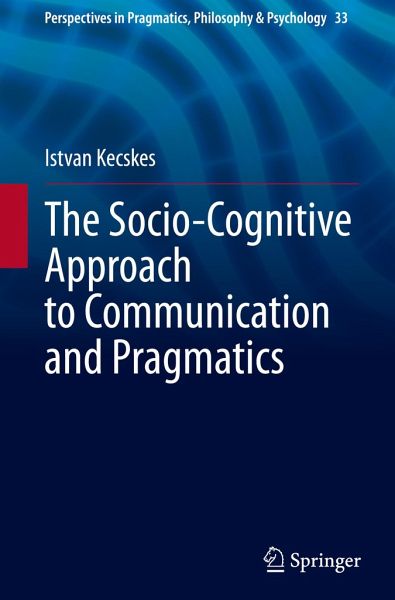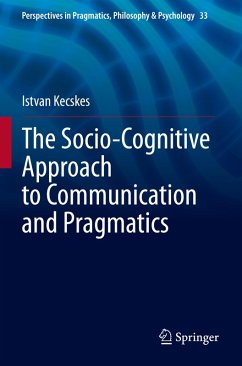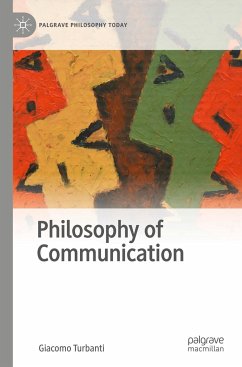
The Socio-Cognitive Approach to Communication and Pragmatics
Versandkostenfrei!
Versandfertig in 6-10 Tagen
83,99 €
inkl. MwSt.
Weitere Ausgaben:

PAYBACK Punkte
42 °P sammeln!
The book aims to serve as a theoretical framework for the socio-cognitive approach (SCA) that is an alternative to the two main lines of pragmatics research: linguistic-philosophical pragmatics and sociocultural-interactional pragmatics. SCA broadens the scope of the field with an intent to incorporate not only L1 communication but also intercultural communication, and communication in a second language. The author integrates the pragmatic view of cooperation and the cognitive view of egocentrism and emphasizes that both cooperation and egocentrism are manifested in all phases of communication...
The book aims to serve as a theoretical framework for the socio-cognitive approach (SCA) that is an alternative to the two main lines of pragmatics research: linguistic-philosophical pragmatics and sociocultural-interactional pragmatics. SCA broadens the scope of the field with an intent to incorporate not only L1 communication but also intercultural communication, and communication in a second language. The author integrates the pragmatic view of cooperation and the cognitive view of egocentrism and emphasizes that both cooperation and egocentrism are manifested in all phases of communication, albeit to varying extents. SCA places equal importance on the social and cognitive individual factors in pragmatics. The author claims that while (social) cooperation is an intention-directed practice that is governed by relevance, (individual) egocentrism is an attention-oriented trait dominated by salience.
The book serves as a theoretical guide for researchers and students who would like to understand how we need to change first language-based theories to make sense of what happens not only in L1 but also in intercultural and multi-lingual interactions.
The book serves as a theoretical guide for researchers and students who would like to understand how we need to change first language-based theories to make sense of what happens not only in L1 but also in intercultural and multi-lingual interactions.














